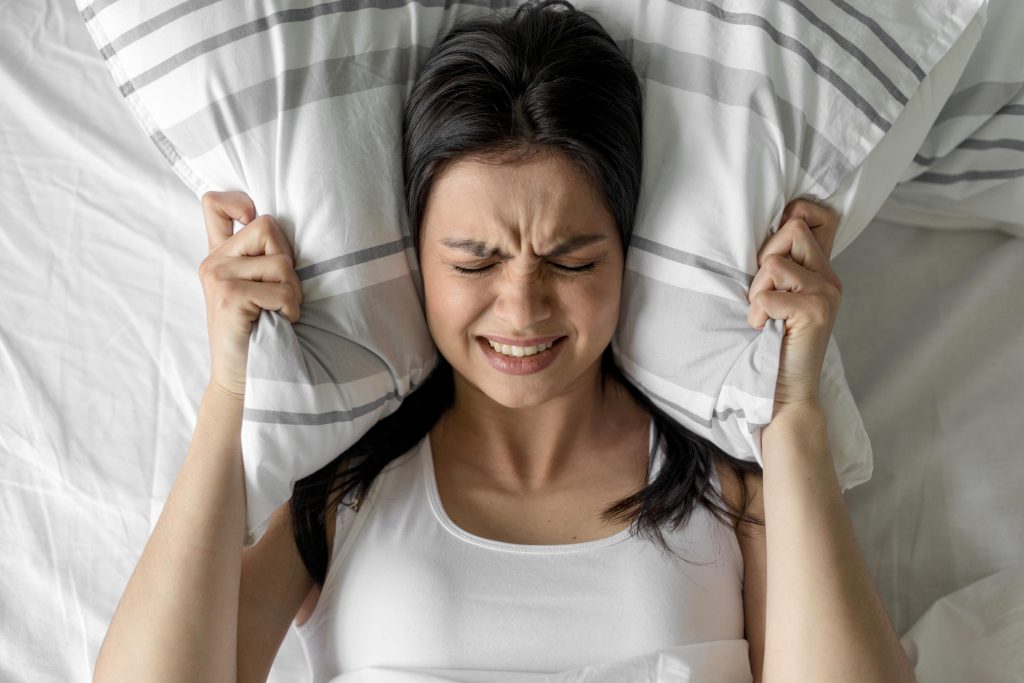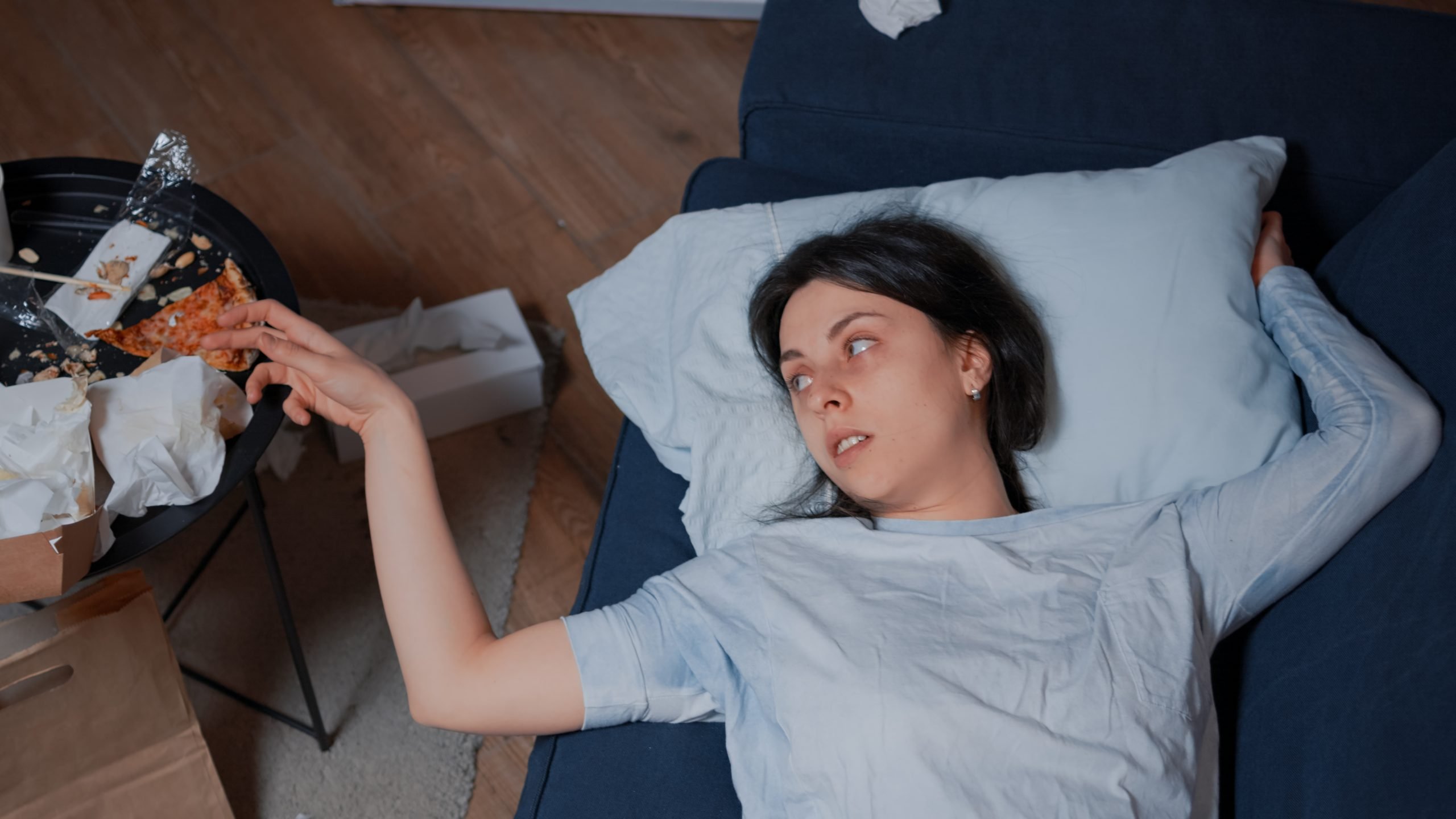Have you ever felt anxious or fearful about going to sleep at night? Do you constantly worry about what might happen while you’re asleep? If so, you may be experiencing somniphobia, also known as the fear of sleep. Read till the end to learn more about somniphobia and sleep anxiety.
Somniphobia is a relatively uncommon but serious phobia that affects many people around the world. It can be a debilitating condition that impacts every aspect of a person’s life, from their physical health to their mental well-being.
In this blog post, we will explore the meaning and causes of somniphobia, as well as how to treat sleep anxiety remedies. We will also discuss the importance of seeking professional help from sleep centers and sleep medicine specialists.
What is Somniphobia?
Somniphobia, also known as sleep anxiety, is an intense fear of falling asleep or being asleep. People with somniphobia often have a fear of the unknown or fear that something bad might happen while they are asleep.
Somniphobia is different from insomnia, which is the inability to fall asleep or stay asleep. Somniphobia is more about the fear of the act of sleeping itself.
Causes of Somniphobiab and Sleep Anxiety
Somniphobia can be caused by a variety of factors, including:
- Traumatic experiences: People who have experienced traumatic events, such as a death or a serious accident, may develop somniphobia as a way of coping with their anxiety.
- Medical conditions: Certain medical conditions, such as sleep apnea or narcolepsy, can cause people to fear falling asleep.
- Mental health disorders: Anxiety disorders, depression, and post-traumatic stress disorder (PTSD) can all contribute to somniphobia.
- Substance abuse: The use of drugs or alcohol can cause people to develop somniphobia.
Symptoms of Somniphobia
The symptoms of somniphobia can vary from person to person, but some of the most common symptoms include:
- Anxiety and fear about falling asleep
- Panic attacks or feelings of dread
- Insomnia or difficulty falling asleep
- Physical symptoms such as sweating, trembling, or rapid heartbeat
- Avoidance of sleep or staying up late to avoid falling asleep
Treatment for Somniphobia
There are several treatment options for somniphobia, including:
- Cognitive-behavioral therapy (CBT): This type of therapy can help people identify and change negative thoughts and behaviors related to sleep.
- Exposure therapy: This involves gradually exposing people to their fears in a safe and controlled environment.
- Relaxation techniques: Relaxation techniques such as deep breathing, meditation, and yoga can help reduce anxiety and promote better sleep.
- Medications: Antidepressants, anti-anxiety medications, and sleep aids may be prescribed by a doctor to help manage symptoms.
Sleep Centers and Sleep Medicine Specialists
In some cases, somniphobia may be a sign of a more serious sleep disorder. It is important to seek professional help if you are experiencing symptoms of somniphobia. Sleep centers and sleep medicine specialists can help diagnose and treat sleep disorders such as sleep apnea, narcolepsy, and restless leg syndrome.
The Center for Sleep Medicine, Sleep and Lung Center, and Sleep Clinic are some of the most well-known and respected sleep centers in the country. They offer a variety of services, including sleep studies, consultations with sleep medicine specialists, and treatment options for sleep disorders.
If you are experiencing symptoms of somniphobia, it is important to seek help from a sleep center or sleep medicine specialist. With the right treatment, you can overcome your fear of sleep and get the restful, restorative sleep.

Different Sleep Anxiety Terms
Fear of sleep, also known as somniphobia, is a condition in which an individual experiences extreme fear and anxiety at the thought of falling asleep. One of the most common fears associated with somniphobia is the fear of dying in one’s sleep. This fear is often related to anxiety around health or a fear of the unknown.
On the other hand, insomnia is a condition characterized by difficulty falling asleep or staying asleep. While fear of sleep and insomnia share some similarities, they are not the same thing. Insomnia can be caused by a range of factors, including stress, anxiety, depression, and medical conditions. In contrast, fear of sleep is a specific fear related to the act of falling asleep.
Another fear related to sleep is the fear of sleeping alone, also known as monophobia. This fear can be related to feelings of vulnerability, fear of harm or danger, or a fear of being alone with one’s thoughts. While fear of sleeping alone is not the same as fear of sleep, they can be related and may require similar treatment methods.
It’s important to note that both fear of sleep and fear of sleeping alone can be treated with therapy and medication. Cognitive-behavioral therapy, exposure therapy, and relaxation techniques may be helpful in managing fear of sleep. Additionally, medication such as antidepressants or anti-anxiety medications may be prescribed by a healthcare professional to manage anxiety and fear related to sleep.
Overall, if you are experiencing fear or anxiety related to sleep, it’s important to seek support and treatment from a healthcare professional. With the right treatment and support, it’s possible to manage and overcome these fears and achieve restful, restorative sleep. Follow our website for more health tips and updates!

